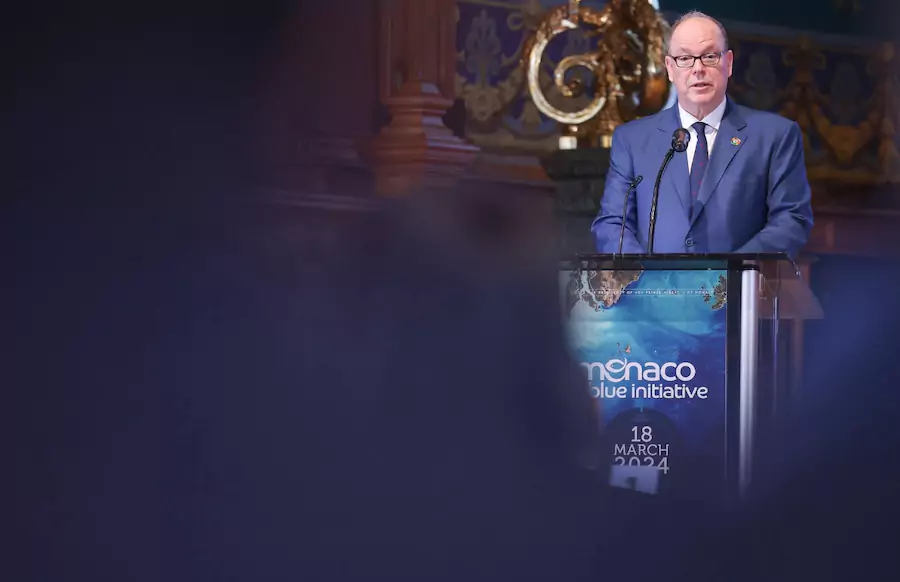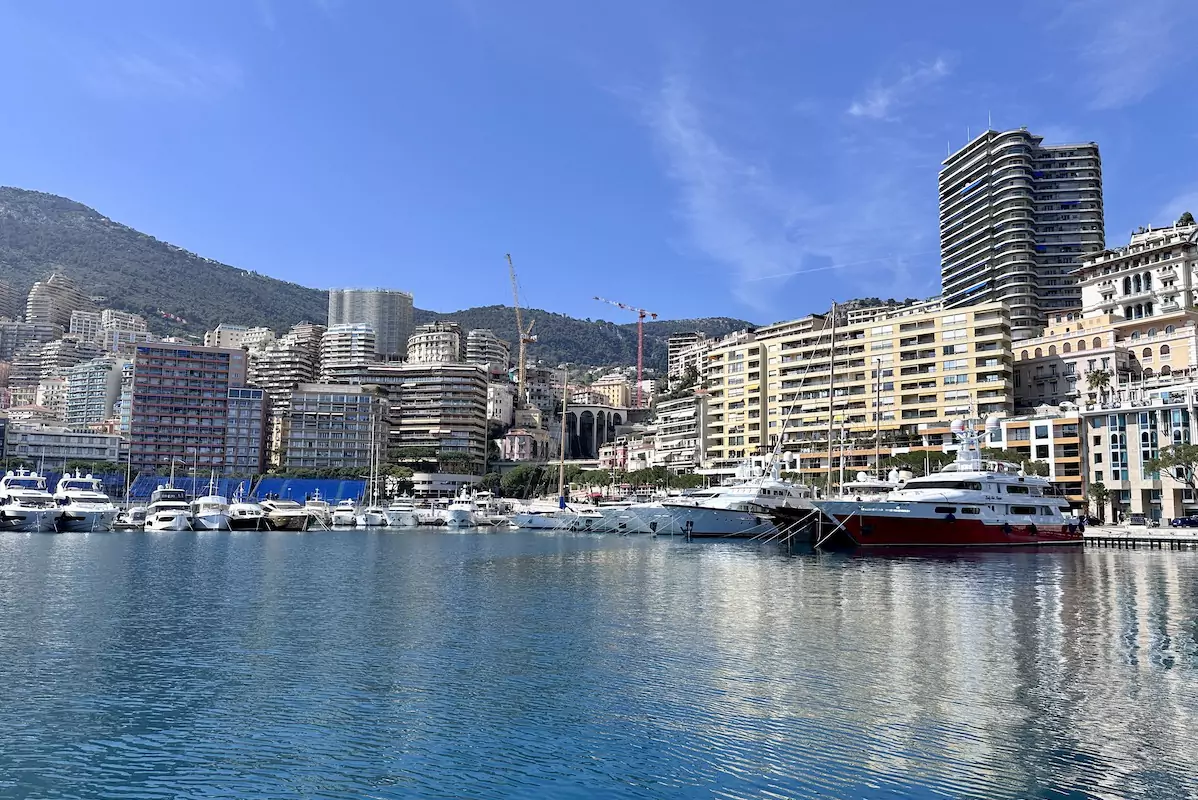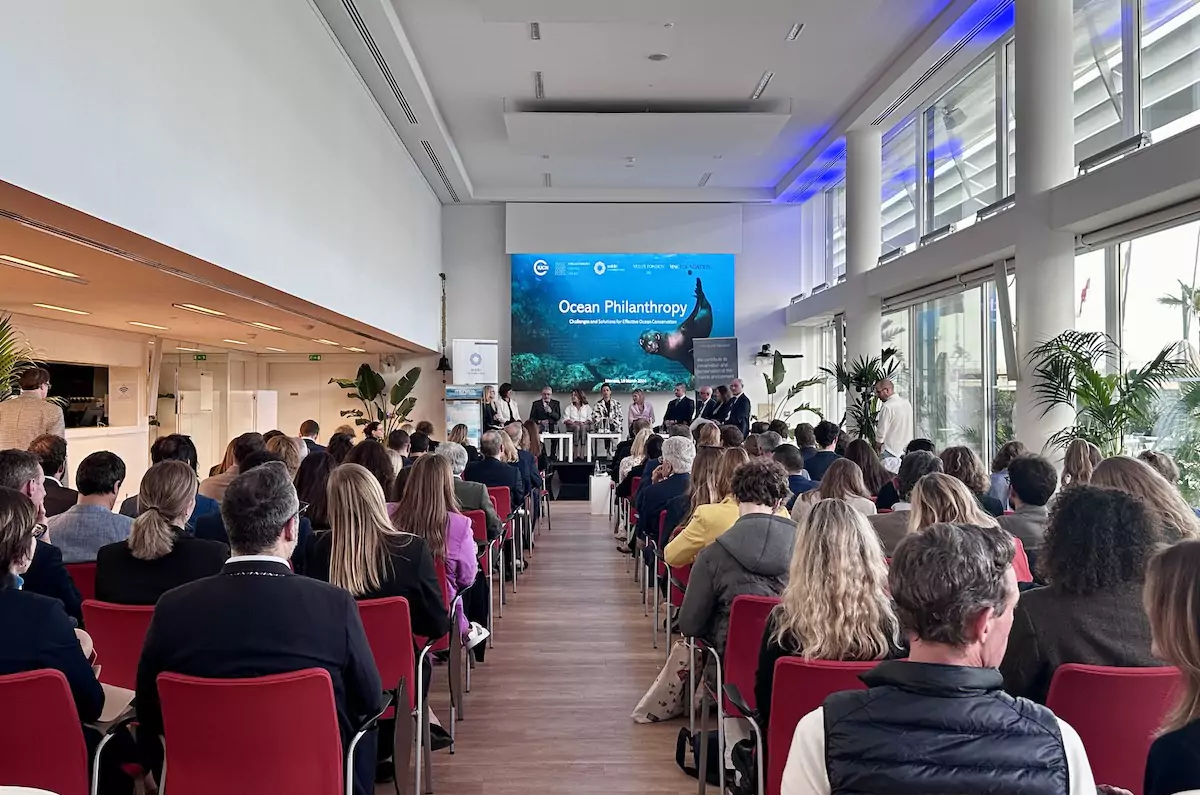How can the world’s richest individuals help protect the ocean? By stepping up their philanthropic contributions and environmental commitments, says Prince Albert, and by funding more Marine Protected Areas and blue economy innovations, according to the experts.
One of the hot topics in a busy Monaco Ocean Week schedule was Ocean Philanthropy. It filled the meeting room of the Yacht Club de Monaco on Tuesday 19th March, with the audience eager to hear from experts the role that philanthropy can play in protecting the oceans.
“Philanthropy is still lagging behind”
In a place like Monaco, where a significant portion of the global billionaire population either reside or own properties, the act of giving back to society is not only common, it is expected.
But as Prince Albert II of Monaco said in his opening speech, “Philanthropy is still lagging behind in terms of environmental commitments, especially in relation to the marine environment.”
That’s not to say it doesn’t exist. Some of the world’s wealthiest individuals and prominent foundations have made substantial contributions to ocean conservation efforts, especially in recent years. For example, the Ocean Elders, a group of influential leaders dedicated to ocean conservation, includes individuals like Richard Branson, Ted Turner and Sylvia Earle, who have used their resources and platforms to advocate for marine protections and support related initiatives.
It just isn’t enough.

Taking ocean philanthropy to the next level
The role of conferences like ‘Ocean Philanthropy’ during Monaco Ocean Week is to gather together key stakeholders who share the same goal: to protect the oceans more effectively by supporting innovation and establishing more Marine Protected Areas (MPAs).
“Our goal is to place philanthropy at the heart of the global approach that engulfs all lifestyles, all societies and all economies,” said Prince Albert. “It is a question of fostering profound change, supporting the emergence of new economic models and new initiatives that perhaps are not profitable now, but which will become very soon as seen in many examples introduced this week.”
The solution, as pointed out by Monaco’s Sovereign and passionate ocean conservationist, is “to work hand in hand with all of the players involved with the ocean – scientists, businesses which hold the innovation, political institutions, and stakeholders in the field, who all understand the actions that we must support”.
High-level discussions
The conference gathered together a panel of experts that included: Director of the International Union for Conservation of Nature Minna Epps; IPCC Secretary Abdalah Mokssit; and Ramzi Issa, the creator of UBS’ ESG debt-swap, an initiative that involves the exchange of traditional debt instruments for those with stronger ESG credentials.
Each panel member gave an important insight into the role of philanthropy in ocean conservation.
“It is time to think about solution-oriented science,” counselled Mokssit.
SEE ALSO: IPCC issues “final warning” on ensuing climate crisis in its latest report
Perhaps the most resounding words came from Enric Sala, Conservationist and National Geographic Explorer in Residence. This former university professor, who saw himself writing the obituary of ocean life, spoke about a regenerative blue economy, the need to dramatically increase the number of MPAs and the importance of achieving ‘30 by 30’, a global conservation initiative aiming to protect 30% of the world’s land and sea areas by 2030. This target is considered crucial for preserving biodiversity, combating climate change and ensuring the long-term health of ecosystems.
“If we really want to develop a Blue Economy that is sustainable and regenerative, the key is 30 by 30,” said Sala. “We can have clean energy, which is great. We can have investable businesses that will make aquaculture officially less bad, which is good. But none of these regenerate the oceans. The only way for the ocean to regenerate is to let it regenerate itself. The science is very clear. This why we need more Marine Protect Areas.”

Sala gave the example of watching French oceanographer and filmmaker Jacques Cousteau when he was younger, witnessing oceans that were filled with fish and different marine species. In reality, when he went diving in the Mediterranean at age 18, he saw nothing like that.
“I thought the Mediterranean was a sea that was naturally poor, until I did my first scuba dive in the Medes Islands, situated in the heart of the Costa Brava, Catalonia, Spain. When I jumped in the water, it was like diving in one of Cousteau’s documentaries. All the fish that were missing from my childhood were there – grouper, scorpion fish, sea bream, sea bass – it was spectacular. But that’s what Marine Protected Areas do, they regenerate the ocean. They turn places that are almost dead into thriving ecosystems where all the species are numerous.”
This restoration of marine life, in turn, provides plenty of benefits to humanity. The MPA that Sala was referring to is only one square kilometre in size – no bigger than Port Hercule in Monaco – yet it generates €16 million in tourism revenue each year from diving and employs 200 people. The cost of managing that reserve, meanwhile, is only €500,000 per year.
“We have seen that, on average, for every $1 invested in an MPA, it generates $10 in economic output, so it’s actually a very good investment,” he affirmed.
Breaking down the myths
Among the main excuses that people like Sala hears with regards to why we can not protect more of the ocean is that it will cost too much money.
“Protecting 30% of the ocean by 2030 – managing a network of marine reserves from small to large, from the poles to the tropics – would cost around $20 billion a year. It sounds a lot,” said the former academic. “Well, that’s the same amount that governments spend to subsidise the fishing industry to conduct overfishing. So, the money is there, but we use it to destroy instead of regenerate.”
Philanthropy can kick start new MPAs and new markets
So, what role can philanthropy really play?
“Philanthropy as a catalytic capital has a key role to fund the implementation of these marine protected areas, to jump start them, and for relatively small amounts of capital. Philanthropy will really help to get us closer to 30 by 30. There is not enough philanthropic capital in the world to cover the $20 billion dollars per year needed, but there other financing mechanisms like debt-swaps, insurance mechanisms and blue bonds that can be stacked on top of public funding, which we know is available. More flow of capital also has to go from the global north to the global south.”
Philanthropy can also help to build new markets. Sala gave the example of carbon markets – mechanisms that aim to reduce greenhouse gas emissions by creating a financial incentive for organisations to cut their carbon footprint – and bottom trawling, the most destructive form of fishing on the planet.
A 2021 study published in Nature calculated that trawling stirs up and releases about one gigaton, or one billion metric tons, of carbon each year — nearly equivalent to the annual emissions from the global aviation industry.
“So, we’re talking about a minimum $30 billion Carbon Market. This dwarfs any another Carbon Market we are talking about.”
The overwhelming message
As the experts show, by aligning philanthropic efforts with tangible conservation objectives, we can harness the power of capital to drive meaningful progress in ocean preservation, ensuring a more resilient and prosperous future for generations to come.
“If philanthropy has clear and measurable goals, it can produce some of the most cost-efficient outcomes on the planet,” concluded Sala, signaling a compelling imperative for concerted philanthropic action in safeguarding our marine heritage.
SEE ALSO:
Join the Monaco Life community – sign up for the Monaco Life newsletter, and follow us on Threads, Facebook, Instagram, LinkedIn and Tik Tok.
Main photo by Monaco Life
